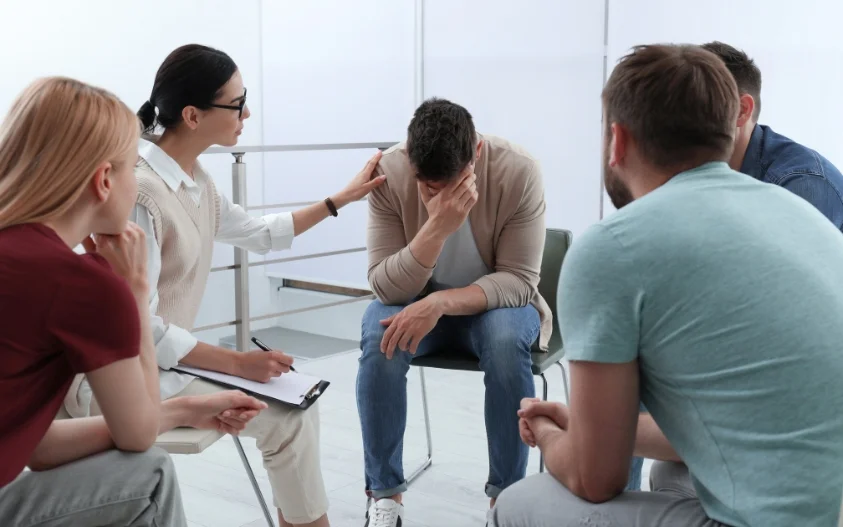24/7 Helpline:
(866) 899-221924/7 Helpline:
(866) 899-2219
Learn more about PTSD Rehab centers in Washington Court House
PTSD Rehab in Other Cities

Other Insurance Options

Sutter

Cigna

CareSource

Anthem

Health Choice

Covered California

Kaiser Permanente

PHCS Network

Humana

BlueCross

Optima

AllWell

EmblemHealth

Lucent

Evernorth

Ambetter

Sliding scale payment assistance

American Behavioral

Magellan

Coventry Health Care

Scioto Paint Valley Mental Health Center
Scioto Paint Valley Mental Health Center provides help for drug addiction, alcoholism, and a variety...

The Ranch of Opportunity
The Ranch of Opportunity in Court House, OH is a safe haven for teenage girls who have experienced t...

Fayette Womens Residential
Fayette Womens Residential is a private rehab located in Washington Court House, Ohio. Fayette Women...

Fayette Recovery Center
Fayette Recovery Center – Washington Court House Ohio is an alcohol rehab center that helps individu...







































